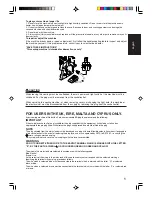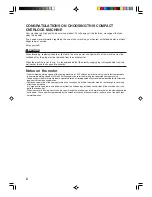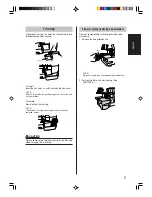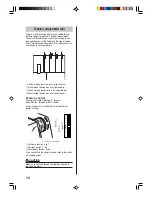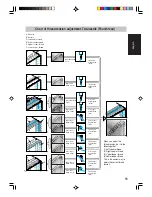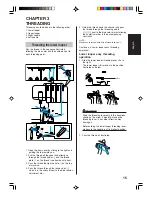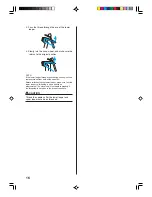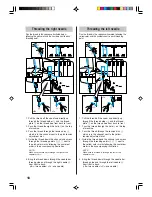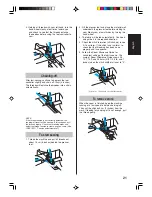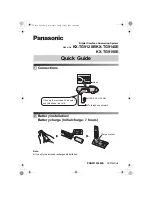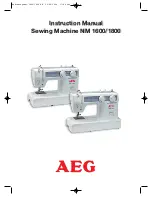
9
English
Differential feed
This serger is equipped with two sets of feed dogs
under the presser foot to move the fabric through the
machine. The differential feed controls the movement of
both the front and the rear feed dogs. When set at 1, the
feed dogs are moving at the same speed (ratio of 1).
When the differential feed ratio is set at less than 1, the
front feed dogs move slower than the rear feed dogs,
stretching the fabric as it is sewn. This is effective on
lightweight fabric that may pucker. When the differential
feed ratio is set at greater than 1, the front feed dogs
move faster than the rear feed dogs, gathering the fabric
as it is sewn. This function assists in removing the
rippling when serging stretch fabrics.
Differential feed adjustment
The normal setting is 1.0 on the differential feed
adjustment dial.
To adjust the diffrerential feed, turn the dial on the right
bottom of the body.
1
2
<A>
1
Less than 1.0
2
Greater than 1.0 <A> Selection mark
Feed
ratio
0.7 - 1.0
1.0
1.0 - 2.0
Main
feed
(rear)
Differential
feed
(front)
Effect
Material is
pulled tight.
Without
differential
feed.
Material is
gathered or
pushed
together.
Application
Prevents thin
materials from
puckering
Normal
sewing
Prevents
stretch
materials from
stretching or
puckering
An example
When stretch material is sewn without using the
differential feed, the edge will be wavy.
To get smooth finish, adjust the feed ratio from 1.0
toward 2.0.
(The feed ratio required depends on the elasticity of the
material.)
The more elastic the material, the further toward 2.0 the
differential feed ratio should be set. Test sew with a
scrap of the fabric to find the correct adjustment.
CAUTION
When sewing thick non-stretchable material such
as denim, do not use the differential feed as it
may damage the fabric.
Adjusting the presser foot pressure
Turn the pressure adjustment screw on the top left of
the machine. You can adjust by reffering the value on
the screw.
The normal setting is "2".
1
2
<A>
1
Less pressure
2
More pressure
<A> Selection mark



